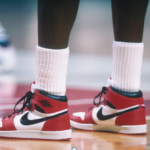By JASON STRAZIUSO
Associated Press
JUBA, South Sudan (AP) _ The estimated 25,000 armed fighters whom the government said had been marching toward a state capital in what could have been a vicious military confrontation have mostly disbanded and returned home, a South Sudan government spokesman said Sunday.
Michael Makuei Lueth told The Associated Press that Nuer community leaders in Jonglei state met with the fighters over the last 48 hours and persuaded most to stand down. Only a “very few” refused to listen and are still gathering, said Lueth. An exact number was not known, he said.
“They have listened to the reasoning and they have accepted to go back,” Lueth said. “Not all of them, of course. There are some who are resistant. It’s not clear if they will advance. The number which is left is negligible and they may not be able to proceed.”
Lueth on Saturday told a news conference that more than 25,000 Lou Nuer youth were marching toward Bor, the provincial capital of Jonglei state, raising the specter of a deadly battle with South Sudan troops, as well as potential attacks on the United Nations base there. Nuer youth in Akobo, Jonglei attacked a U.N. base earlier this month, killing three U.N. troops and some two dozen ethnic Dinkas.
South Sudan troops in Bor remain on “maximum alert” in case Nuer fighters try to attack, even with lower numbers. Bor briefly fell to rebel fighters earlier this month after major fighting broke out in the capital on Dec. 15, said Lueth.
The ethnic Nuer fighters are called the “White Army” by some, a reference to the white ash they spread on their skin to protect against insect bites.
The U.N. Sunday said it was “extremely concerned” about the reports of a mass movement by fighters and urged them to return home. The U.N. said it was conducting an aerial mission on Sunday to determine the number of fighters and their direction of travel.
The U.N. aerial reconnaissance flight spotted groups of armed youths about 50 kilometers (30 miles) northeast of Bor in an area called Padiang, said U.N. spokesman Joe Contreras who said he did not immediately have an estimate of numbers or a direction of travel.
“South Sudan does not need another escalation of the crisis involving armed youth, pitching communities against communities. This can end in a vicious cycle of violence,” said the U.N. representative to South Sudan, Hilde Johnson.
The White Army has threatened the central government in recent past. In 2011 the army said that the Nuer youths would fight until all the Murle _ another tribe _ had been killed. Another statement warned that the White Army would “wipe out” the army, according to the Enough Project, a U.S.-based advocacy group that works in central Africa.
President Salva Kiir, an ethnic Dinka, accuses former Vice President Riek Machar, an ethnic Nuer, of a coup attempt. Machar denies the charge. Forces loyal to Machar now control Bentiu, the capital of a major oil producing state, Unity.
At the international airport in the capital, Juba, on Sunday, Chinese oil workers waiting for an outbound flight told an AP reporter they had been working in Upper Nile, South Sudan’s other oil-producing state, but were now going home because of the violence. Malakal, Upper Nile’s state capital, has seen fighting in recent days. The government now controls it.
The oil worker, who refused to give his name because he was not authorized to speak to the press, said he believes some oil fields in Upper Nile state had been shut down. The government previously confirmed that oil fields in Unity state have been closed.
East African leaders are trying to get Kiir and Machar to meet at the negotiating table. But government spokesman Lueth said that Machar has not responded to any efforts to begin talks.
“If Riek Machar does not accept this and if he continues to attack our forces or the civilian population then definitely the government of South Sudan is under duty to protect its citizens,” Lueth said.










